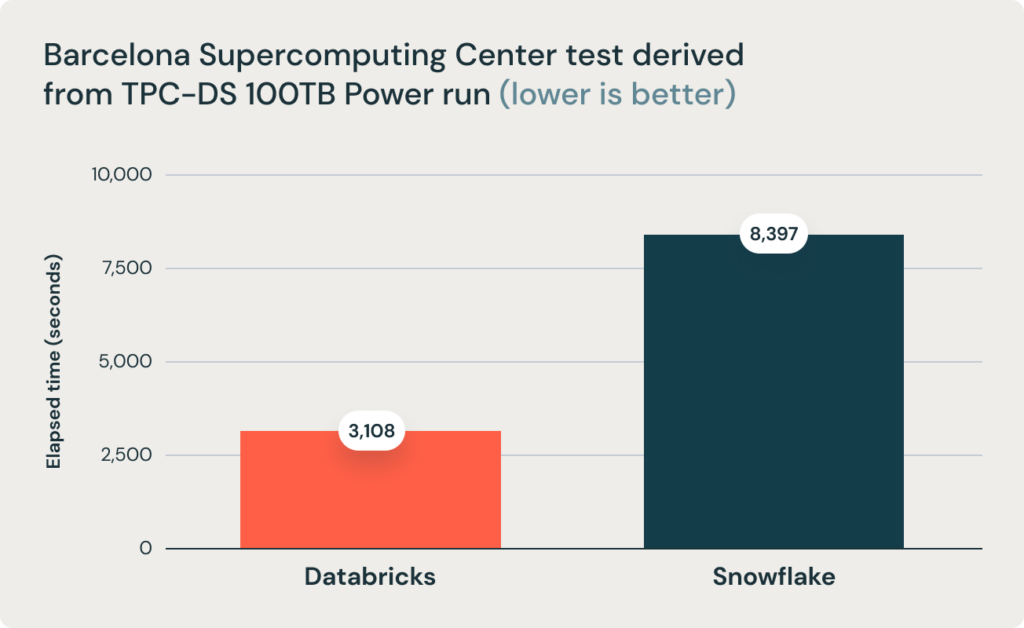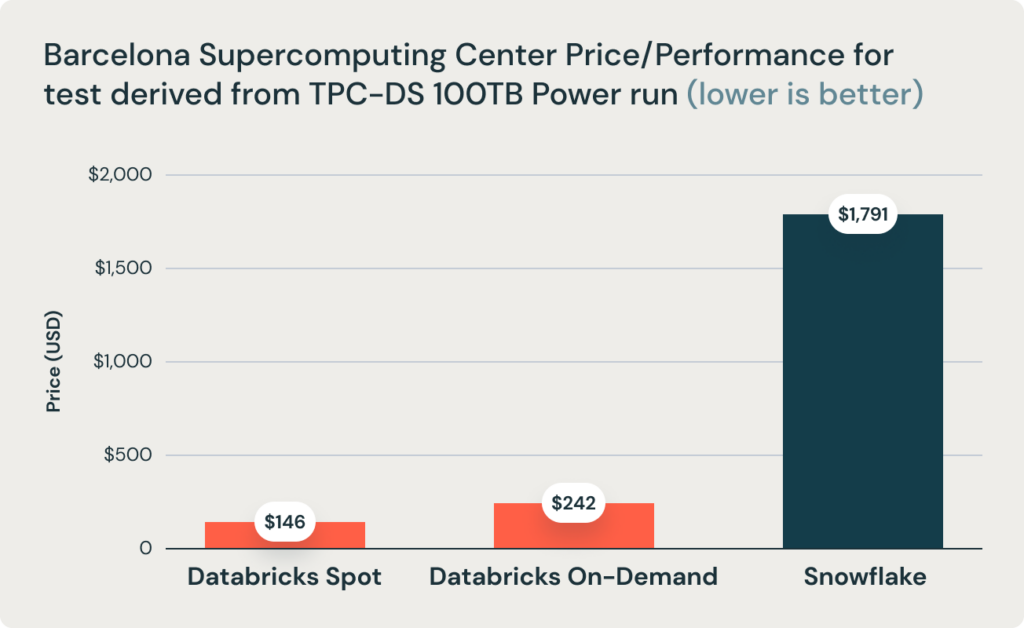If you’ve 8 mins to spare.. this video explains the topic very well.
Last Updated on August 25, 2022 by SK
If you’ve 8 mins to spare.. this video explains the topic very well.
Last Updated on August 25, 2022 by SK
Last Updated on December 12, 2021 by SK
Last Updated on December 8, 2021 by SK
Last Updated on November 21, 2021 by SK
Last Updated on November 15, 2021 by SK
Last Updated on November 14, 2021 by SK
Healthy and open competition is great for any industry, especially the technology industry that is super conscious of price/performance. Databricks and Snowflake are two great companies duking it out in this price/performance game recently. They’ve published blogs with claims and counter claims. Great insights provided by both blogs and interesting read as well. If you are too rushed to read the entire blog(s), the images below gives you a snapshot of what is said in the blogs. Enjoy!.
Earlier this month, Databricks published a blog claiming “World record” performance for processing 100TB tpc-ds benchmark. It also said corroboration by Barcelona supercomputing center (BCS). And squarely aimed it at Snowflake!https://databricks.com/blog/2021/11/02/databricks-sets-official-data-warehousing-performance-record.html

Source link

Source link
Yesterday, Snowflake published a counter blog (written by the founders benoit and thierry). Basically says, you don’t need a third party, just do it yourself in our cloud platform, it is so simple to verify!!.https://www.snowflake.com/blog/industry-benchmarks-and-competing-with-integrity/
Source Link
Source Link
Last Updated on August 25, 2022 by SK